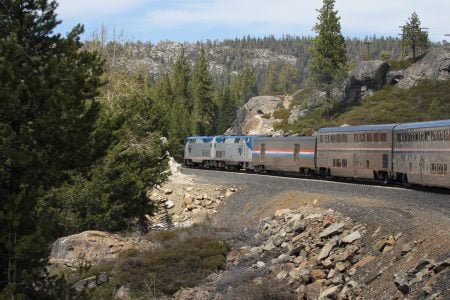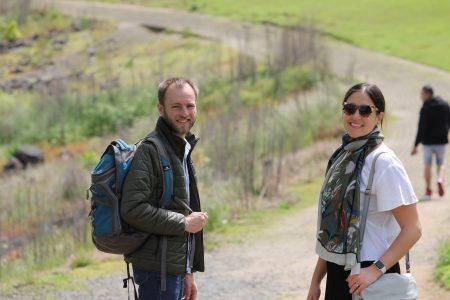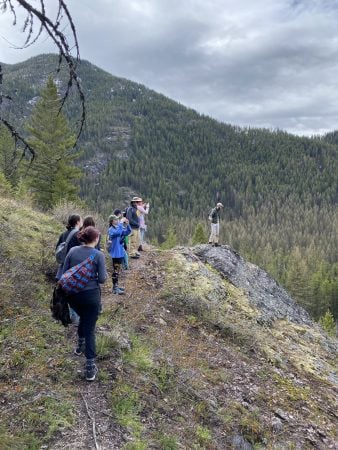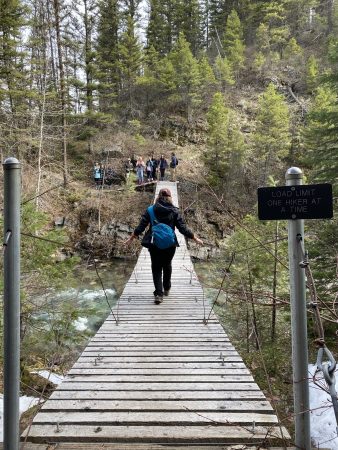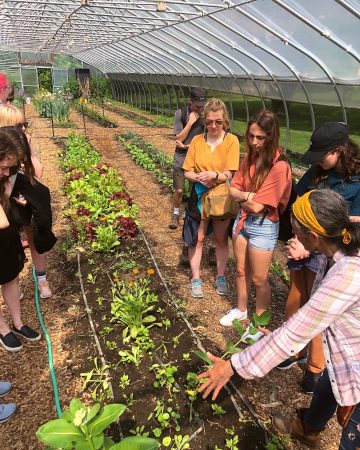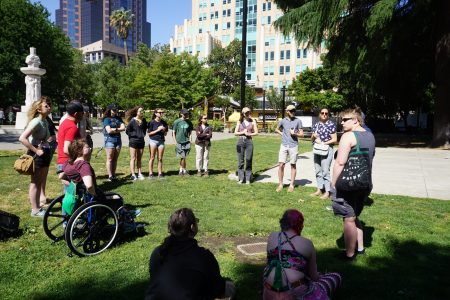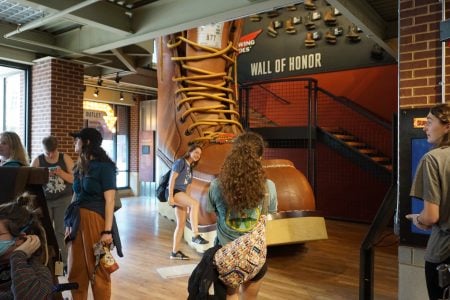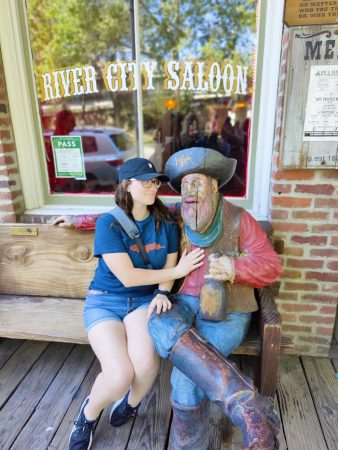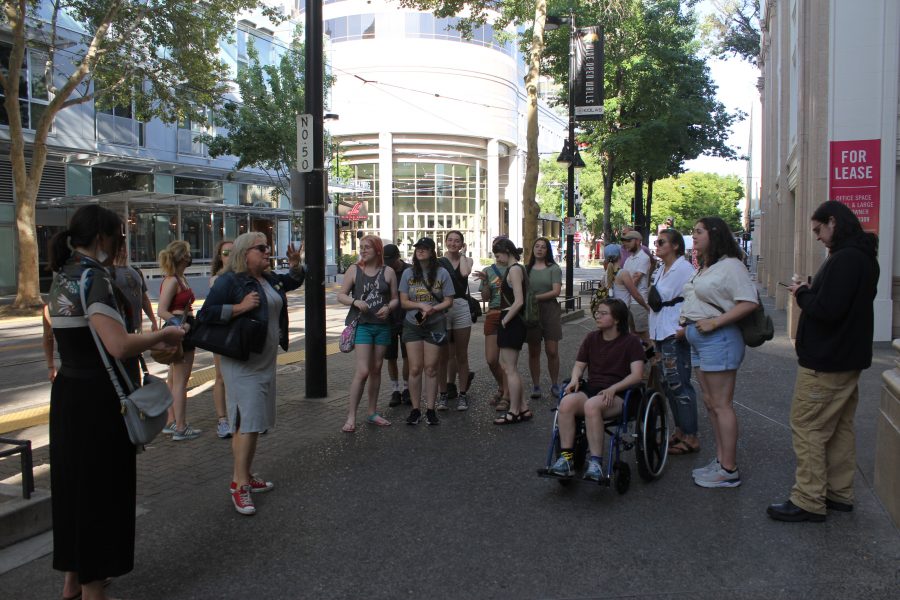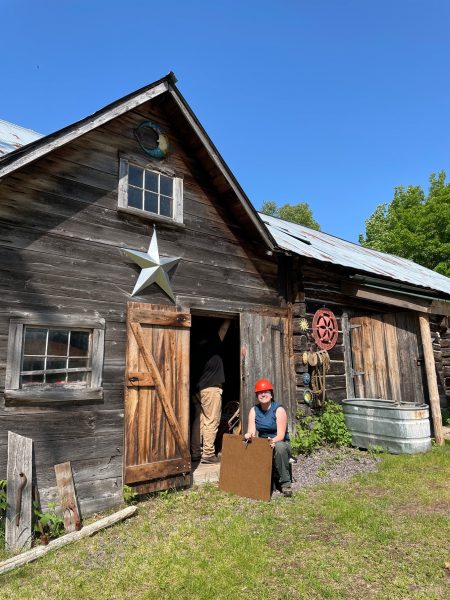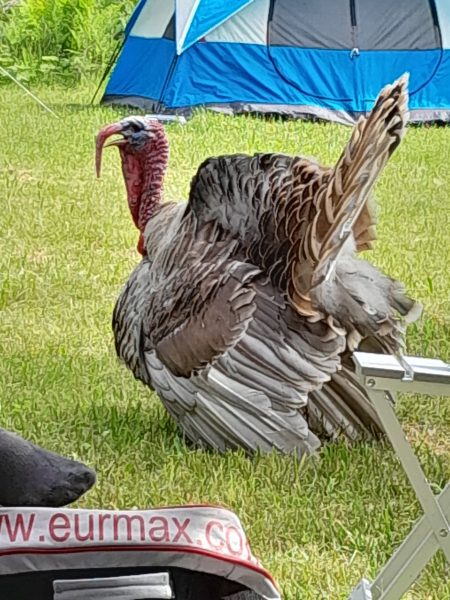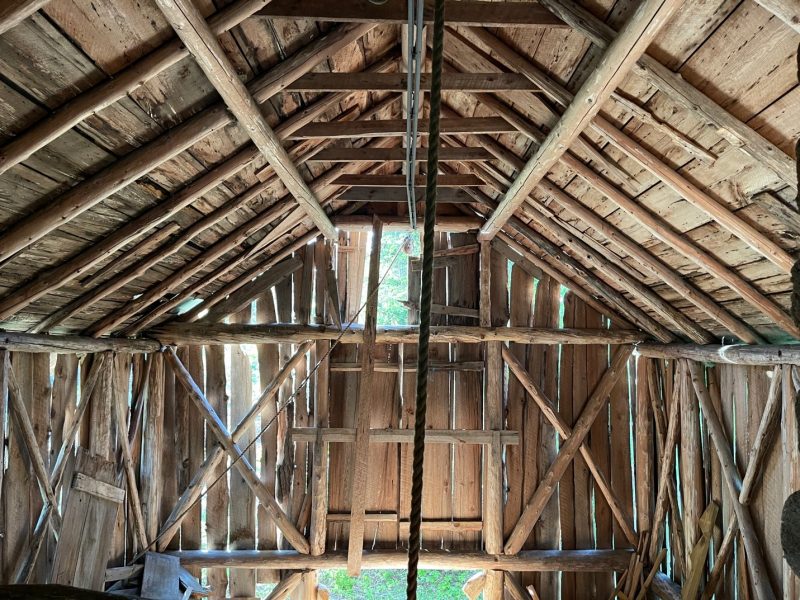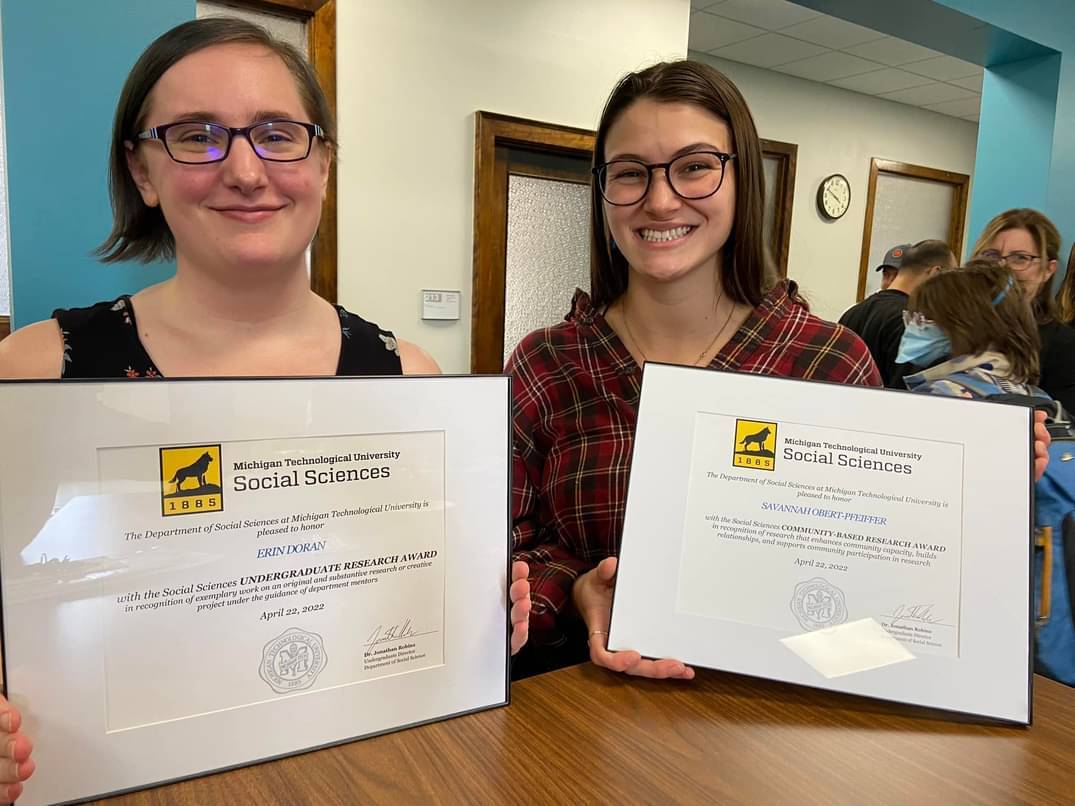Last summer, 18 Michigan Tech students boarded a train. They spent 18 days traversing the US practicing and learning about sustainable tourism. Amtrak Study Away directors Mark Rhodes, assistant professor of geography and heritage, and Kathryn Hannum, teaching assistant professor and Policy and Community Development advisor for the Department of Social Sciences, helped the students navigate the US passenger rail service off and on across 6 different cities.
For 20 days, students solely utilized public transit to explore the concepts of sustainable tourism and planning, landscape analysis, and urban deindustrialization. They spent two nights in independently-run hotels across each of the 6 stops and cities along the Empire Builder and California Zephyr Amtrak routes. Students saw firsthand how tourism has been incorporated and resisted from national parks to major metros, to deindustrialized small towns. Students frequently met with city planners, government officials, urban and sustainability studies scholars, and stakeholders in the heritage and hospitality industries.
“Amtrak is a great means for students to learn that not all places see tourism as a net gain. Some places, especially our national parks like Glacier are beginning to combat overtourism. Our students get to speak to local stakeholders to understand many different perspectives on tourism and sustainability,” Rhodes said.
The Community/Real World is the Classroom
In creating the Amtrak program, Rhodes drew inspiration from other geographers who suggest we need more community-based learning field experiences. Much of Rhodes’s thinking comes from Houston and Lange who aim to destabilize the idea of the “real world/campus and field/classroom” in favor of a more co-constructive and integrated learning experience. Rhodes was able to bring the program to fruition through funding from Michigan Tech’s Next-Gen Gen-Ed, the Institute for Sustainabilty and Resilience, and the Department of Social Sciences.
“It is exciting to give our students a truly immersive and hands-on experience. On the Amtrak program, classes were held on the train, in hotel lobbies, in restaurants, and in actual classrooms. Simultaneously, those spaces functioned as a living laboratory for engaging fieldwork. And the train serves as a mobile dormitory, with dining, recreational, and sleeping areas,” Rhodes said. “Interactions with communities were in dialogue, not scientific observation or one-way explanations. Students brought those experiences, observations, and perspectives back to campus and the Keweenaw via a public event. Students presented key findings, engaged in Q&A, and discussed ideas for how the UP can benefit from tourism, if done sustainably.”
“Being able to compare many different cities, places, and environments in such a short period of time was eye-opening,” said Nick Hatley, an Amtrak Study Away participant and mechanical engineering major. “It was also my first time on a train. It was a unique travel experience.”
Sustainability Science in Society
The Amtrak Study Away program offered other unique opportunities for students. Of the 18 students, three students presented on the possibilities of study away and Amtrak within the realm of sustainability and equity at the Global and Community Engagement conference. Four students will travel to the Annual Meeting of American Association of Geographers in Denver, Colorado to sit on a domestic study away experience panel while also presenting their original research.
The Amtrak Study Away program changed perceptions too. Following the program, 87% of the students stated their perception of public transit changed positively. Post-trip, students responded with a 4.6/5 that they were “extremely likely” to “seek out public transit in the future” and that they were also “extremely likely” (4.7/5) to ride Amtrak again.
All-Aboard for Amtrak Study Away 2023
Applications are now open for Amtrak Tourism 2023 (application and deposit deadline is January 13, 2023), where students can pay just $1000, plus tuition, and experience 6 unique landscapes and many tourism, sustainable planning, and governmental organizations. Program fees include all lodging, transportation, activities (such as a Portland Thorns soccer game, a Local Roots food tour, and the Glenwood Springs hot spring). Students will hike Glacier National Park, help keep Portland Weird, and receive a tour of Knox Farm’s sustainable urban agriculture. Follow all the Amtrak Study Away program exploits from 2022 on Instagram. Reach out to Mark Rhodes with questions.
About the Social Sciences Department
Social Sciences at Michigan Technological University helps students apply academic concepts to real-world issues. We use tools from anthropology, geography, history, political science, and sociology to help find sustainable solutions to complex problems. The department offers five undergraduate degrees, five graduate degrees, and one graduate certificate program in public policy. Regardless of the path you choose, our faculty will help you lay the foundation for a meaningful career.
